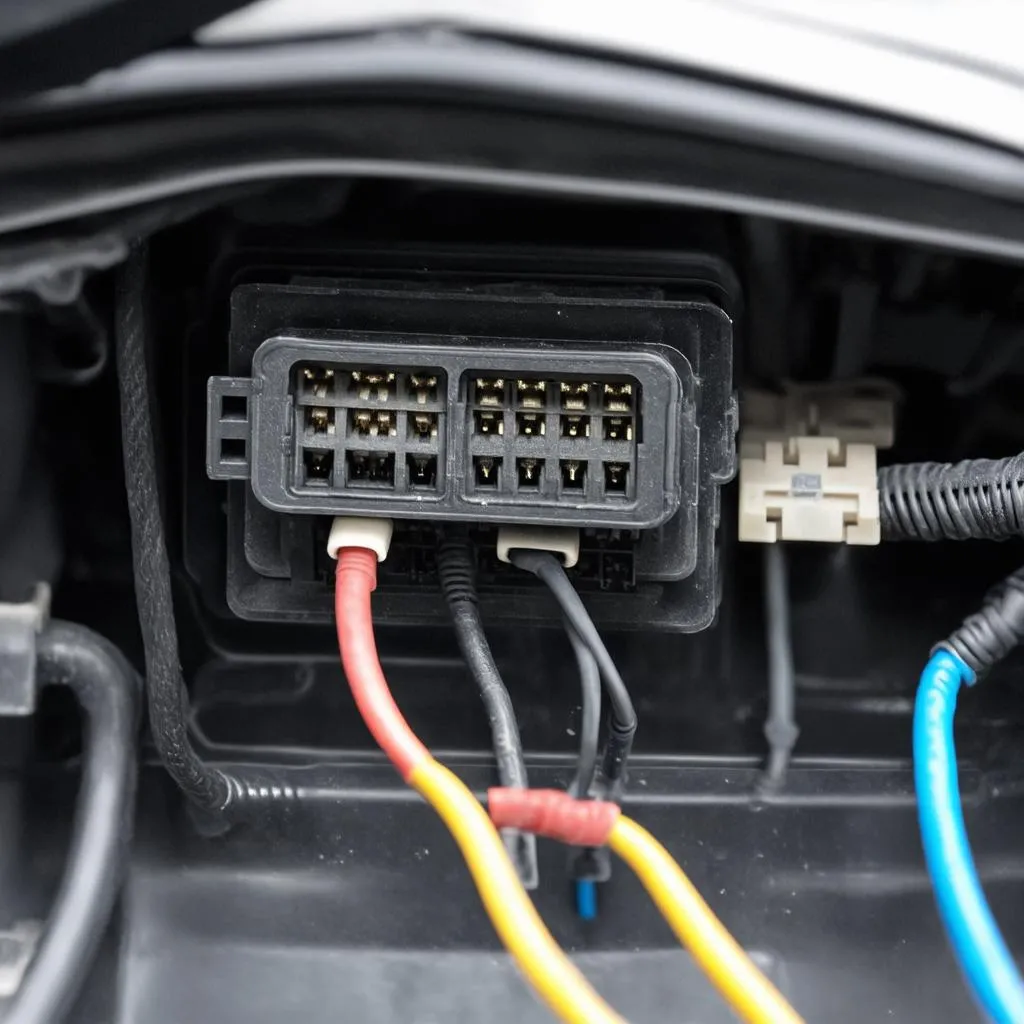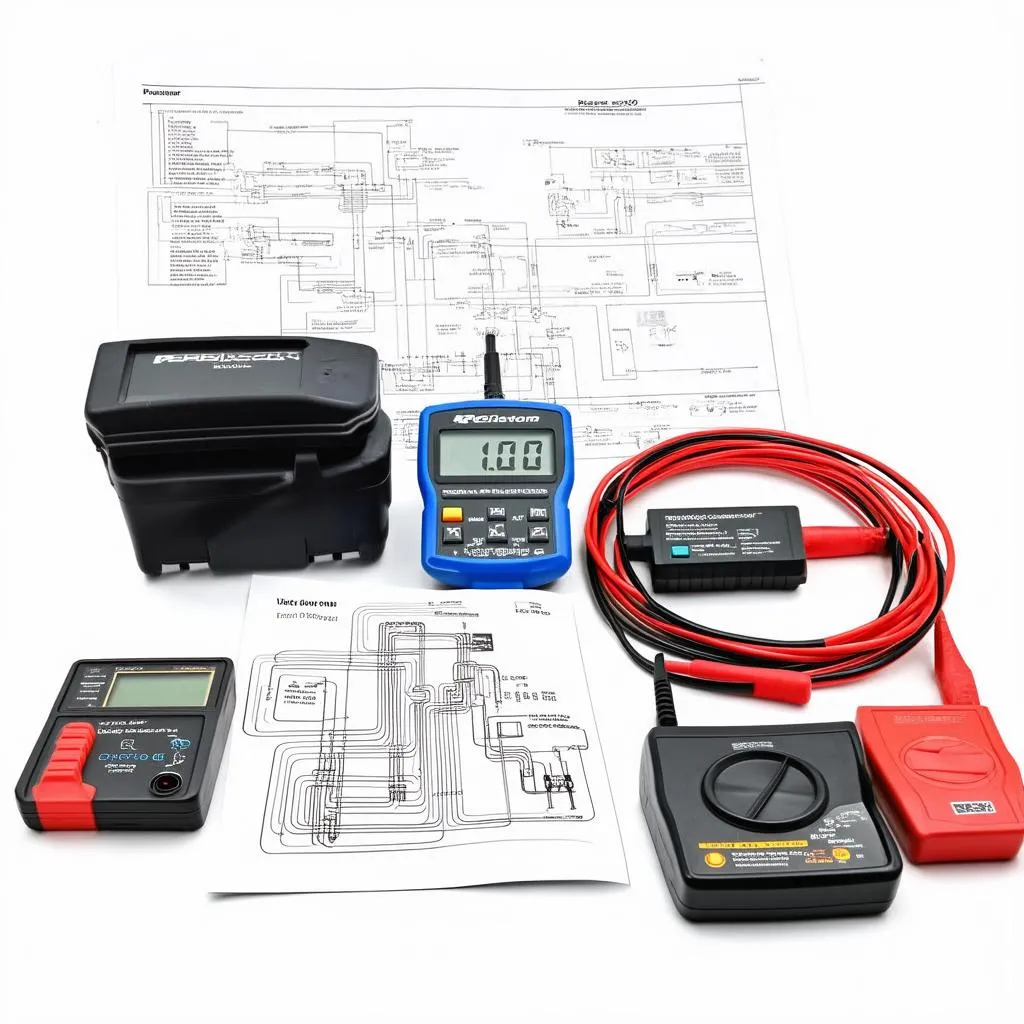Picture this: you’re about to embark on a road trip, but your trusty car decides to throw a tantrum. You hook up your OBD scanner, eager to decipher the cryptic codes and save the day, only to be met with a soul-crushing message: “Can’t connect to ECU.” It’s like your car’s brain has gone offline, leaving you stranded on the side of the digital highway.
Don’t panic! We’ve all been there. This frustrating issue is more common than you might think, and with a little detective work, you can get to the bottom of it. This article will guide you through the potential culprits behind your OBD connection woes and arm you with the knowledge to get your car communicating again.
Decoding the Disconnect: What Does “OBD Won’t Connect to ECU” Really Mean?
Before we dive into the solutions, let’s demystify the problem. The OBD, or On-Board Diagnostics, port is your car’s communication hub. It’s how your scanner talks to the ECU (Engine Control Unit), the brains of your vehicle’s operation. When the OBD can’t connect to the ECU, it means this communication line is down, and like a game of telephone gone wrong, the message isn’t getting through.
Think of it like this: you’re trying to call your mechanic, but the phone line is dead. The problem could lie with your phone (the scanner), the phone line itself (the wiring), or even your mechanic’s end (the ECU).
Troubleshooting Your OBD Connection: Where to Start Your Investigation
Now that we understand the “why” behind the message, let’s explore the “how” to fix it. Here are some common culprits and troubleshooting tips:
1. Check Your OBD Scanner and Cable: The Usual Suspects
Often, the simplest solution is the right one. Before you suspect a major malfunction, start with the basics:
- Is your OBD scanner compatible with your car’s make and model? Just like phones, not all scanners are created equal. Some scanners are designed for specific car brands or models, especially when it comes to European vehicles. For instance, certain BMW and Mercedes models might require specialized scanners.
- Is your OBD cable securely connected to both the port and the scanner? A loose connection can disrupt communication, just like a bad phone line.
- Is your scanner powered on and functioning correctly? Try connecting it to another vehicle to rule out any issues with the scanner itself.
2. Inspect the Fuse Box: The Unsung Hero
Fuses are the safety guards of your car’s electrical system. A blown fuse can interrupt the flow of power to the OBD port, preventing communication with the ECU.
- Locate your car’s fuse box. This is usually under the dashboard or in the engine compartment. Your owner’s manual will be your best friend in finding it.
- Identify the fuse related to the OBD port or the ECU. Again, refer to your owner’s manual for guidance.
- Inspect the fuse for any signs of damage or breakage. If you find a blown fuse, replace it with a new one of the same amperage.
3. Examine the Wiring: The Communication Highway
Wires are the messengers between your OBD port and the ECU. Damaged, corroded, or loose wires can obstruct communication, leading to a frustrating “ECU not found” message.
- Visually inspect the wiring harness connected to the OBD port. Look for any signs of damage, such as fraying, cuts, or burns.
- Check for loose connections or corrosion on the pins inside the OBD port. Corrosion can build up over time, hindering electrical contact.
- If you’re comfortable with basic electrical work, you can use a multimeter to test for continuity in the wiring. This will help determine if there’s a break in the circuit.
 Car OBD Port and Wiring
Car OBD Port and Wiring
4. Consider ECU Issues: The Brain Drain
While less common, a faulty ECU can also prevent OBD connection. This is like trying to call your mechanic, but their phone is broken.
- Symptoms of a failing ECU can vary widely, from engine performance issues to electrical gremlins. If you’ve noticed other symptoms alongside the OBD connection problem, a faulty ECU could be the culprit.
- Diagnosing and repairing an ECU issue is best left to a qualified mechanic. They have the tools and expertise to test the ECU and determine the appropriate course of action.
Frequently Asked Questions: Your OBD and ECU Queries Answered
Here are some common questions car owners often have about OBD and ECU issues:
Q: Can a dead car battery cause an OBD connection problem?
A: Yes, a dead or severely discharged battery can disrupt the flow of power to the OBD port, making it difficult to establish communication with the ECU. If you suspect a battery issue, try jump-starting your car or charging the battery before attempting to connect your OBD scanner.
Q: What should I do if I’ve checked everything and still can’t connect to the ECU?
A: If you’ve exhausted all troubleshooting steps, it’s best to consult a qualified mechanic. They have the expertise and specialized tools to diagnose and repair more complex electrical issues that might be hindering your OBD connection.
Q: Can I drive my car if the OBD won’t connect to the ECU?
A: While a disconnected OBD port itself won’t prevent your car from running, the underlying issue causing the disconnection could potentially affect your car’s performance. It’s best to err on the side of caution and get the issue diagnosed and resolved as soon as possible to avoid any potential hazards on the road.
 Car Diagnostic Tools
Car Diagnostic Tools
OBD Won’t Connect to ECU: Seeking Expert Help
Remember, a “can’t connect to ECU” message is like a distress signal from your car. While this guide provides a starting point for troubleshooting, seeking professional help is crucial for accurate diagnosis and repair, especially if you’re dealing with European cars known for their complex electronics.
For expert guidance and assistance with your OBD connection problems, feel free to reach out to our team of automotive specialists via WhatsApp at +84767531508. We’re here to help you get your car communicating again!
Explore Further:
For more insights into OBD-related issues, check out these articles:
Let us know in the comments below if you have any other questions or need further assistance. Happy troubleshooting!
